61 start with F start with F
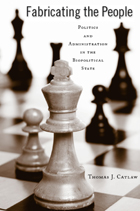
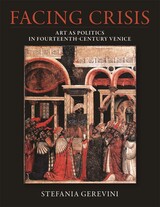
Though Venice emerged as a leading Mediterranean power in the Trecento, the city faced a series of crises during a brief but cataclysmic period coinciding with Andrea Dandolo’s dogeship (1343–1354): earthquakes, disease, fierce military conflicts, and dramatic political and institutional tensions had the republic on edge. It was nevertheless precisely at this time that the government sponsored the ambitious and sumptuous artistic campaigns in San Marco that are at the heart of this book: a reliquary-chapel, a new baptistery, and a folding altarpiece, all masterpieces crafted with unparalleled technical skill, blending Byzantine and Italianate visual forms.
Far from being mere artistic commissions, these works were affirmative political interventions that interrogated the meaning of community, authority, and (shared) political leadership at a time when those notions were unsettled. Looking beyond established concepts of triumph and imperialism, Facing Crisis situates the artistic interactions between Byzantium and Venice into ongoing processes of state formation and attests to the power of images to inform—and transform—political imaginations in troubled times. This study thus offers new insights into how medieval communities across the Mediterranean understood and responded to uncertainty through the visual, and, in doing so, probes the value of “crisis” as a methodological framework.
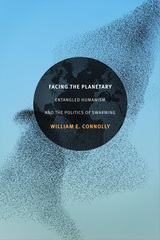
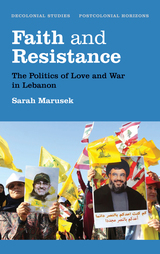
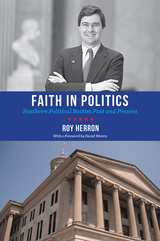
Roy Herron graduated with highest honors from the University of Tennessee at Martin, then studied New Testament and Ethics in Scotland before earning Divinity and Law degrees from Vanderbilt University. But he came home to West Tennessee and served the Volunteer State in both the Tennessee House and Senate. For four decades, Herron served as a legislator, attorney, teacher, and Methodist minister. In that work, he published op-ed essays and articles in Tennessee’s leading newspapers and publications from The Japan Times to The Wall Street Journal on various topics including constitutional liberties, economic justice, health care, politics, and more.
This informative volume collects the most powerful of these writings, adding helpful updates and contemporary insights. With an engaging, conversational style, Herron addresses voter ID laws, drunk-driving statutes, women’s rights and many recurring, contemporary issues. Whether describing the challenges facing his elderly mother as she attempted to exercise her right to vote, or the struggles of working women and men facing illnesses without health insurance, Herron demonstrates an earnestness and thoughtfulness all too rare in politics.
These nearly fifty essays and articles provide evidence that Herron’s Democratic Party and Christianity are not mutually exclusive. Indeed, Herron describes how faith brought him to politics and to fighting for justice, jobs, and constitutional freedoms for all citizens. Faith at Work is a veritable guidebook on how faith and spirituality should affect decision making and advocacy in public life.
ROY HERRON was a Tennessee State Representative from 1987 to 1997 and State Senator from 1997 to 2013. He wrote Things Held Dear: Soul Stories for My Sons and God and Politics: How Can a Christian Be in Politics? He coauthored, with Cotton Ivy, Tennessee Political Humor: Some of These Jokes You Voted For. He lawyers and writes in West Tennessee and Nashville.

Bringing together central issues in translation studies with episodes in Jewish–Christian history, Naomi Seidman considers a range of texts, from the Bible to Elie Wiesel’s Night, delving into such controversies as the accuracy of various Bible translations, the medieval use of converts from Judaism to Christianity as translators, the censorship of anti-Christian references in Jewish texts, and the translation of Holocaust testimony. Faithful Renderings ultimately reveals that translation is not a marginal phenomenon but rather a crucial issue for understanding the relations between Jews and Christians and indeed the development of each religious community.
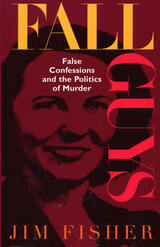
Jim Fisher, criminal justice professor and former FBI agent, reveals how he uncovered the framing of two boys in a pair of unrelated murders committed in 1956 and 1958.
In the first of the cases, eleven-year-old Charlie Zubryd confessed that at the age of eight, he had murdered his widowed mother by driving a hatchet into her skull. The crime was committed in the basement of the modest Zubryd home in a rural section of Sewickley Township in western Pennsylvania, an area not far from Pittsburgh. Following intense police questioning, young Zubryd confessed to the crime in March 1959, a full twenty-eight months after the bloody murder of his mother.
Too young to prosecute, Charlie Zubryd was adopted after his confession and a brief stay in a mental ward. A childless couple gave Zubryd a new name and identity. It would be twenty years before Charlie Zubryd—now going by the name Chuck Duffy—would have any contact with his biological family.
When Zubryd/Duffy made an effort to get his real family back, he was rejected because his relatives still believed he had murdered his mother. In fact, until Fisher began to investigate the case in 1989, Chuck Duffy himself was not sure he had not killed his mother during some kind of mental blackout.
The second murder occurred in 1958, two years after the Zubryd case. Thirteen-year-old Jerry Pacek endured forty-one hours of police grilling before he confessed to raping and killing fifty-year-old Lillian Steveck as she walked home one evening from a bus stop in Breckenridge, Pennsylvania. Pacek told the same Allegheny County homicide detective who had framed Charlie Zubryd that he had killed the woman with a variety of blunt objects, none of which were ever found. The thirteen-year-old boy was tried and convicted of the murder the following spring. He was sent to Camp Hill Prison, where he remained incarcerated for ten years.
Fisher’s investigation cleared the names of both the wrongfully accused boys. Because of his investigation, the Zubryd case was reopened, which led to the identification of a vicious killer. In 1991, Fisher’s investigative efforts convinced the governor of Pennsylvania to grant a full pardon to Jerry Pacek, who as a teenager had served ten years in an adult prison for a murder he had not committed.
Jim Fisher and the Zubryd and Pacek stories have been featured on a number of nationally broadcast television programs.
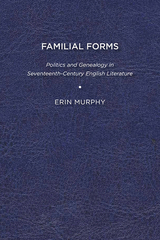
Familial Forms is the first full-length study to examine how literary writers engaged the politics of genealogy that helped define the “century of revolution.” By demonstrating how conflicts over the family-state analogy intersected with the period’s battles over succession, including: the ascent of James I, the execution of Charles I, disputes over the terms of the Interregnum government, the Restoration of Charles II, the Exclusion Crisis, the deposition of James II, the ascent of William and Mary, and Anne’s failure to produce a surviving heir, this study provides a new map of the seventeenth-century politics of family in England. Beginning with a reconsideration of Jacobean patriarchalism, Familial Forms focuses on the work of John Milton, Lucy Hutchinson, John Dryden, and Mary Astell. From their contrasting political and gendered positions, these authors contemplated and contested the relevance of marriage and kinship to government. Their writing illuminates two crucial elements of England’s conflicts. First, the formal qualities of poems and prose tracts reveal that not only was there a competition among different versions of the family-state analogy, but also a competition over its very status as an analogy. Second, through their negotiations of linear and nonlinear forms, Milton, Hutchinson, Dryden, and Astell demonstrate the centrality of temporality to the period’s political battles.
Through close textual analysis of poetry, political tracts, parliamentary records, and nonliterary genealogies, Familial Forms offers a fresh understanding of the seventeenth-century politics of genealogy. It also provides new answers to long-standing critical questions about the poetic form of canonical works, such as Paradise Lost and Absalom and Achitophel, and illuminates the political significance of newly-canonical works by women writers, including Aemilia Lanyer’s Salve Deus Rex Judaeoreum, Hutchinson’s Order and Disorder, and Astell’s A Serious Proposal to the Ladies.
Published by University of Delaware Press. Distributed worldwide by Rutgers University Press.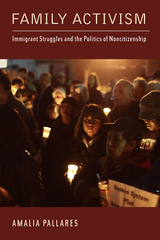

In this thorough and lively study, Allen Matusow, tracing the history of government policy on food and agriculture during the Truman administration, relates the process by which the United States government overcame disharmony among its own politicians and farmers to save Europe from famine in the years immediately following World War II.
The Department of Agriculture, which had asserted that “food will win the war and write the peace,” was often reluctant to believe its own slogan. Elucidating the policies involved in postwar planning for both foreign trade and domestic farm production, Matusow shows how the memorable fear of huge surpluses created by the Depression in the 1930s had affected the attitudes of government officials toward agricultural planning and production from 1945 to 1952.
Interpreting the origins and defeat of the Brannan Plan, the author finds remnants of that policy evident in the current adoption of production payments. Farm Policies and Politics in the Truman Years offers new insight into the creative agricultural policy which emerged, from hesitant beginnings, in Truman's second term.
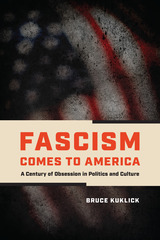
From the time Mussolini took power in Italy in 1922, Americans have been obsessed with and brooded over the meaning of fascism and how it might migrate to the United States. Fascism Comes to America examines how we have viewed fascism overseas and its implications for our own country. Bruce Kuklick explores the rhetoric of politicians, who have used the language of fascism to smear opponents, and he looks at the discussions of pundits, the analyses of academics, and the displays of fascism in popular culture, including fiction, radio, TV, theater, and film. Kuklick argues that fascism has little informational meaning in the United States, but instead, it is used to denigrate or insult. For example, every political position has been besmirched as fascist. As a result, the term does not describe a phenomenon so much as it denounces what one does not like. Finally, in displaying fascism for most Americans, entertainment—and most importantly film—has been crucial in conveying to citizens what fascism is about. Fascism Comes to America has been enhanced by many illustrations that exhibit how fascism was absorbed into the US public consciousness.
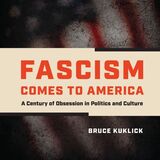
A deeply relevant look at what fascism means to Americans.
From the time Mussolini took power in Italy in 1922, Americans have been obsessed with and brooded over the meaning of fascism and how it might migrate to the United States. Fascism Comes to America examines how we have viewed fascism overseas and its implications for our own country. Bruce Kuklick explores the rhetoric of politicians, who have used the language of fascism to smear opponents, and he looks at the discussions of pundits, the analyses of academics, and the displays of fascism in popular culture, including fiction, radio, TV, theater, and film. Kuklick argues that fascism has little informational meaning in the United States, but instead, it is used to denigrate or insult. For example, every political position has been besmirched as fascist. As a result, the term does not describe a phenomenon so much as it denounces what one does not like. Finally, in displaying fascism for most Americans, entertainment—and most importantly film—has been crucial in conveying to citizens what fascism is about. Fascism Comes to America has been enhanced by many illustrations that exhibit how fascism was absorbed into the US public consciousness.

At a point when fashion studies are expanding and the fashion industry is at a crucial point of change, Fashion Knowledge makes a valuable contribution to the field. The book explores current issues in fashion research, with a focus on the relationship between theory and practice. This edited collection assembles academic essays and intellectual activism next to visual essays and artistic interventions, proposing a different concept for fashion research that eschews the traditional logic of academic fashion studies. It features acclaimed designers, artists, curators, and theorists whose work investigates the multi-faceted debates on the rise of practice-based research in fashion. Contributors look at new forms of fashion knowledge that are forming along with shifting practices, shedding light on the entanglement of fashion and politics in both contemporary and historical moments.
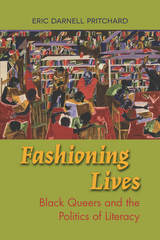
Winner, Lavender Rhetorics Award for Excellence in Queer Scholarship from CCCC, 2018
Winner, Advancement of Knowledge Award from CCCC, 2018
Winner, Outstanding Book Award from the Conference on Community Writing, 2017
Fashioning Lives: Black Queers and the Politics of Literacy analyzes the life stories of sixty Black lesbian, gay, bisexual, transgender, and queer (LGBTQ) people along with archival documents, literature, and film. Author Eric Darnell Pritchard provides a theoretical framework for studying the literacy work of Black LGBTQ people, who do not fit into the traditional categories imposed on their language practices and identities. Examining the myriad ways literacy is used to inflict harm, Pritchard discusses how these harmful events prompt Black LGBTQ people to ensure their own survival by repurposing literacy through literacy performances fueled by accountability to self and communal love towards social and political change, a process the author calls “restorative literacies.” Pritchard highlights restorative literacies in literacy institutions (e.g., libraries, schools), historical records repositories, religious and spiritual spaces, parties, community events, activist organizations, and digital spheres. This trailblazing study draws connections between race and queerness in literacy, composition, and rhetoric and provides the basis for a sustainable dialogue on their intersections in the discipline.
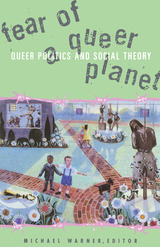

Giving particular attention to intergovernmental working relationships, this revised edition of Federalism and Environmental Policy has been significantly updated to reflect the changes that have taken place since the highly praised first edition. Denise Scheberle examines reasons why environmental laws seldom work out exactly as planned. Casting federal-state working relationships as "pulling together," "coming apart," or somewhere in-between, she provides dozens of observations from federal and state officials. This study also suggests that implementation of environmental policy is a story of high stakes politics—a story rich with contextual factors and as fascinating as the time the policy was formulated.
As four very different environmental programs unfold—asbestos (updated to include the fallout from the World Trade Center), drinking water, radon, and surface coal mining—Scheberle demonstrates how programs evolve differently, with individual political, economic, logistical, and technical constraints. The policy implementation framework developed for the book provides the lens through which to compare environmental laws.
Federalism and Environmental Policy goes beyond the contents of policy to explore the complex web of federal-state working relationships and their effect on the implementation of policy. It is unique in how it portrays the nuts-and-bolts, the extent to which the state and federal offices work together effectively—or not. Examining working relationships within the context of program implementation and across four different environmental programs offers a unique perspective on why environmental laws sometimes go awry.
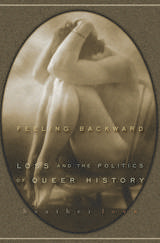
Feeling Backward weighs the costs of the contemporary move to the mainstream in lesbian and gay culture. While the widening tolerance for same-sex marriage and for gay-themed media brings clear benefits, gay assimilation entails other losses--losses that have been hard to identify or mourn, since many aspects of historical gay culture are so closely associated with the pain and shame of the closet.
Feeling Backward makes an effort to value aspects of historical gay experience that now threaten to disappear, branded as embarrassing evidence of the bad old days before Stonewall. It looks at early-twentieth-century queer novels often dismissed as "too depressing" and asks how we might value and reclaim the dark feelings that they represent. Heather Love argues that instead of moving on, we need to look backward and consider how this history continues to affect us in the present.
Through elegant readings of Walter Pater, Willa Cather, Radclyffe Hall, and Sylvia Townsend Warner, and through stimulating engagement with a range of critical sources, Feeling Backward argues for a form of politics attentive to social exclusion and its effects.
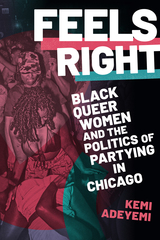
Duke University Press Scholars of Color First Book Award recipient
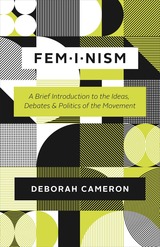
In the era of #MeToo, Trump, and online harassment, innovative progressive feminist voices are more essential than ever. With her latest book, Deborah Cameron considers feminism from all sides—as an idea, as a theoretical approach, and as a political movement. Written in the succinct, sharp style that has made Cameron’s feminist linguistics blog so popular, this short book lays out past and present debates on seven key topics: domination, rights, work, femininity, sex, culture, and the future. Feminism emphasizes the diversity of feminist thought, including queer, women-of-color, and trans perspectives. Cameron’s clear and incisive account untangles the often confusing strands of one of history’s most important intellectual and political movements.
Broad in scope but refreshingly concise, this book is perfect for anyone who needs a straightforward primer on the complex history of feminism, a nuanced explanation of key issues and debates, or strategic thinking about the questions facing activists today.
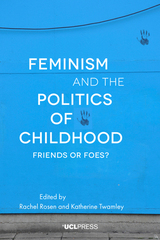
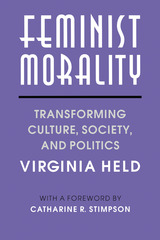
Feminist Morality makes a vital contribution to the ongoing debate in feminist theory on the importance of motherhood. For philosophers and other readers outside feminist theory, it offers a feminist moral and social critique in clear and accessible terms.
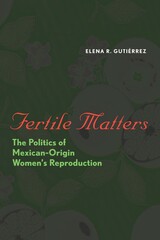
While the stereotype of the persistently pregnant Mexican-origin woman is longstanding, in the past fifteen years her reproduction has been targeted as a major social problem for the United States. Due to fear-fueled news reports and public perceptions about the changing composition of the nation's racial and ethnic makeup—the so-called Latinization of America—the reproduction of Mexican immigrant women has become a central theme in contemporary U. S. politics since the early 1990s.
In this exploration, Elena R. Gutiérrez considers these public stereotypes of Mexican American and Mexican immigrant women as "hyper-fertile baby machines" who "breed like rabbits." She draws on social constructionist perspectives to examine the historical and sociopolitical evolution of these racial ideologies, and the related beliefs that Mexican-origin families are unduly large and that Mexican American and Mexican immigrant women do not use birth control.
Using the coercive sterilization of Mexican-origin women in Los Angeles as a case study, Gutiérrez opens a dialogue on the racial politics of reproduction, and how they have developed for women of Mexican origin in the United States. She illustrates how the ways we talk and think about reproduction are part of a system of racial domination that shapes social policy and affects individual women's lives.
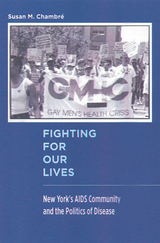
In the first decade of the AIDS epidemic, New York City was struck like no other. By the early nineties, it was struggling with more known cases than the next forty most infected cities, including San Francisco, combined.
Fighting for Our Lives is the first comprehensive social history of New York's AIDS community-a diverse array of people that included not only gay men, but also African Americans, Haitians, Latinos, intravenous drug users, substance abuse professionals, elite supporters, and researchers. Looking back over twenty-five years, Susan Chambré focuses on the ways that these disparate groups formed networks of people and organizations that-both together and separately-supported persons with AIDS, reduced transmission, funded research, and in the process, gave a face to an epidemic that for many years, whether because of indifference, homophobia, or inefficiency, received little attention from government or health care professionals.
Beyond the limits of New York City, and even AIDS, this case study also shows how any epidemic provides a context for observing how societies respond to events that expose the inadequacies of their existing social and institutional arrangements. By drawing attention to the major faults of New York's (and America's) response to a major social and health crisis at the end of the twentieth century, the book urges more effective and sensitive actions-both governmental and civil-in the future.
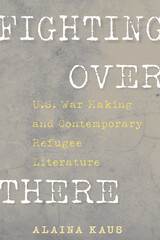
U.S. foreign policy has long been built on a dichotomy of an irreplaceable “here” and an expendable “there.” In his 2003 announcement of the military campaign in Iraq, George W. Bush declared that we would fight in the Middle East so we wouldn’t have to fight “on the streets of our cities.” But what do the millions of people who live over “there” have to say about U.S. interventions and the displacement they provoke?
In this pathbreaking study, Alaina Kaus analyzes literature by and about refugees who fled Southeast Asia, Central America, the Caribbean, North Africa, and the Middle East, in the wake of U.S. military occupation and economic intervention. Narratives by authors such as Lan Cao, Viet Thanh Nguyen, Demetria Martínez, Héctor Tobar, Dave Eggers, Mohsin Hamid, and Riverbend reveal contradictions in the human rights pledges that undergird U.S. foreign policy, which promote freedom while authorizing intervention and displacement, and favor market-based solutions over social justice and racial equality.

The rootless Jew, wandering disconnected from history, homeland, and nature, was often the target of early twentieth-century nationalist rhetoric aimed against modern culture. But following World War II, a number of prominent French philosophers recast this maligned figure in positive terms, and in so doing transformed postwar conceptions of politics and identity.
Sarah Hammerschlag explores this figure of the Jew from its prewar usage to its resuscitation by Jean-Paul Sartre, Emmanuel Levinas, Maurice Blanchot, and Jacques Derrida. Sartre and Levinas idealized the Jew’s rootlessness in order to rethink the foundations of political identity. Blanchot and Derrida, in turn, used the figure of the Jew to call into question the very nature of group identification. By chronicling this evolution in thinking, Hammerschlag ultimately reveals how the figural Jew can function as a critical mechanism that exposes the political dangers of mythic allegiance, whether couched in universalizing or particularizing terms.
Both an intellectual history and a philosophical argument, The Figural Jew will set the agenda for all further consideration of Jewish identity, modern Jewish thought, and continental philosophy.
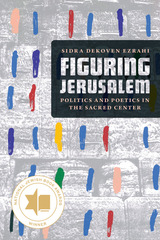
For two thousand years, Hebrew writers used their exile from the Holy Land as a license for invention. The question at the heart of Figuring Jerusalem is this: how did these writers bring their imagination “home” in the Zionist century? Sidra DeKoven Ezrahi finds that the same diasporic conventions that Hebrew writers practiced in exile were maintained throughout the first half of the twentieth century. And even after 1948, when the state of Israel was founded but East Jerusalem and its holy sites remained under Arab control, Jerusalem continued to figure in the Hebrew imagination as mediated space. It was only in the aftermath of the Six Day War that the temptations and dilemmas of proximity to the sacred would become acute in every area of Hebrew politics and culture.
Figuring Jerusalem ranges from classical texts, biblical and medieval, to the post-1967 writings of S. Y. Agnon and Yehuda Amichai. Ultimately, DeKoven Ezrahi shows that the wisdom Jews acquired through two thousand years of exile, as inscribed in their literary imagination, must be rediscovered if the diverse inhabitants of Jerusalem are to coexist.

Financial Missionaries to the World establishes the broad scope and significance of "dollar diplomacy"—the use of international lending and advising—to early-twentieth-century U.S. foreign policy. Combining diplomatic, economic, and cultural history, the distinguished historian Emily S. Rosenberg shows how private bank loans were extended to leverage the acceptance of American financial advisers by foreign governments. In an analysis striking in its relevance to contemporary debates over international loans, she reveals how a practice initially justified as a progressive means to extend “civilization” by promoting economic stability and progress became embroiled in controversy. Vocal critics at home and abroad charged that American loans and financial oversight constituted a new imperialism that fostered exploitation of less powerful nations. By the mid-1920s, Rosenberg explains, even early supporters of dollar diplomacy worried that by facilitating excessive borrowing, the practice might induce the very instability and default that it supposedly worked against.
"[A] major and superb contribution to the history of U.S. foreign relations. . . . [Emily S. Rosenberg] has opened up a whole new research field in international history."—Anders Stephanson, Journal of American History
"[A] landmark in the historiography of American foreign relations."—Melvyn P. Leffler, author of A Preponderence of Power: National Security, the Truman Administration, and the Cold War
"Fascinating."—Christopher Clark, Times Literary Supplement

Recently, a volatile global economy has challenged the United States to rethink its financial policies toward economically troubled countries. Emily Rosenberg suggests that perplexing questions about how to standardize practices within the global financial system, and thereby strengthen market economies in unstable areas of the world, go back to the early decades of this century. Then, dollar diplomacy--the practice of extending private U.S. bank loans in exchange for financial supervision over other nations--provided America's major approach to stabilizing economies overseas and expanding its influence.
Policymakers, private bankers, and the members of the emerging profession of international economic advising cooperated in devising arrangements by which U.S. banks would extend foreign loans on the condition that the countries hire U.S. experts to revamp financial systems and exercise some supervision. Rosenberg demonstrates that these arrangements were not simply technical and shows how they became central to foreign policy debates during the 1920s, when increasingly vocal critics at home and abroad assailed dollar diplomacy as a new imperialism. She explores how loan-for-supervision arrangements interrelated with broad cultural notions of racial destiny, professional expertise, and the virtues of manliness. An innovative, interdisciplinary study, Financial Missionaries to the World illuminates the dilemmas of public/private cooperation in foreign economic policy and the incalculable consequences of exercising financial power in the global marketplace.

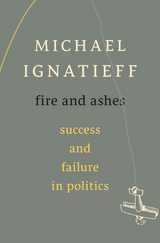
In 2005 Michael Ignatieff left his life as a writer and professor at Harvard University to enter the combative world of politics back home in Canada. By 2008, he was leader of the country’s Liberal Party and poised—should the governing Conservatives falter—to become Canada’s next Prime Minister. It never happened. Today, after a bruising electoral defeat, Ignatieff is back where he started, writing and teaching what he learned.
What did he take away from this crash course in political success and failure? Did a life of thinking about politics prepare him for the real thing? How did he handle it when his own history as a longtime expatriate became a major political issue? Are cynics right to despair about democratic politics? Are idealists right to hope? Ignatieff blends reflection and analysis to portray today’s democratic politics as ruthless, unpredictable, unforgiving, and hyper-adversarial.
Rough as it is, Ignatieff argues, democratic politics is a crucible for compromise, and many of the apparent vices of political life, from inconsistency to the fake smile, follow from the necessity of bridging differences in a pluralist society. A compelling account of modern politics as it really is, the book is also a celebration of the political life in all its wild, exuberant variety.
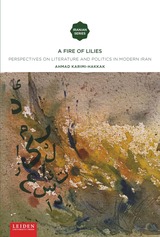
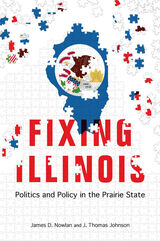
- An overhaul of state pension systems that includes more reasonable benefits and raising of the retirement age, among other changes;
- Broadening of the tax base to include services and reductions in rates;
- Raising funds with capital construction bonds to update and integrate the antiquated information systems used by state agencies;
- Uprooting the state's entrenched culture of corruption via public financing of elections, redistricting reform, and revolving door prohibitions for lawmakers
Pointed, honest, and pragmatic, Fixing Illinois is a plan for effective and honest government that seeks an even nobler end: restoring our faith in Illinois's institutions and reviving a sense of citizenship and state pride.
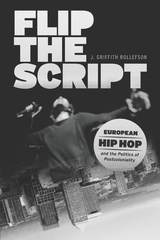
Through analysis of recorded music and other media, as well as interviews and fieldwork with hip hop communities, J. Griffith Rollefson shows how this music created by black Americans is deployed by Senegalese Parisians, Turkish Berliners, and South Asian Londoners to both differentiate themselves from and relate themselves to the dominant culture. By listening closely to the ways these postcolonial citizens in Europe express their solidarity with African Americans through music, Rollefson shows, we can literally hear the hybrid realities of a global double consciousness.
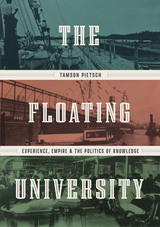
In 1926, New York University professor James E. Lough—an educational reformer with big dreams—embarked on a bold experiment he called the Floating University. Lough believed that taking five hundred American college students around the globe by ship would not only make them better citizens of the world but would demonstrate a model for responsible and productive education amid the unprecedented dangers, new technologies, and social upheavals of the post–World War I world. But the Floating University’s maiden voyage was also its last: when the ship and its passengers returned home, the project was branded a failure—the antics of students in hotel bars and port city back alleys that received worldwide press coverage were judged incompatible with educational attainment, and Lough was fired and even put under investigation by the State Department.
In her new book, Tamson Pietsch excavates a rich and meaningful picture of Lough’s grand ambition, its origins, and how it reveals an early-twentieth-century America increasingly defined both by its imperialism and the professionalization of its higher education system. As Pietsch argues, this voyage—powered by an internationalist worldview—traced the expanding tentacles of US power, even as it tried to model a new kind of experiential education. She shows that this apparent educational failure actually exposes a much larger contest over what kind of knowledge should underpin university authority, one in which direct personal experience came into conflict with academic expertise. After a journey that included stops at nearly fifty international ports and visits with figures ranging from Mussolini to Gandhi, what the students aboard the Floating University brought home was not so much knowledge of the greater world as a demonstration of their nation’s rapidly growing imperial power.
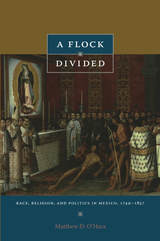
O’Hara focuses on interactions between church authorities and parishioners from the late-colonial era into the early-national period, first in Mexico City and later in the surrounding countryside. Paying particular attention to disputes regarding caste status, the category of “Indian,” and the ownership of property, he demonstrates that religious collectivities from neighborhood parishes to informal devotions served as complex but effective means of political organization for plebeians and peasants. At the same time, longstanding religious practices and ideas made colonial social identities linger into the decades following independence, well after republican leaders formally abolished the caste system that classified individuals according to racial and ethnic criteria. These institutional and cultural legacies would be profound, since they raised fundamental questions about political inclusion and exclusion precisely when Mexico was trying to envision and realize new forms of political community. The modes of belonging and organizing created by colonialism provided openings for popular mobilization, but they were always stalked by their origins as tools of hierarchy and marginalization.
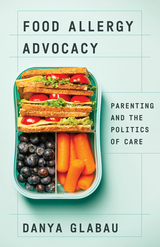
A detailed exploration of parents’ fight for a safe environment for their kids, interrogating how race, class, and gender shape health advocacy
The success of food allergy activism in highlighting the dangers of foodborne allergens shows how illness communities can effectively advocate for the needs of their members. In Food Allergy Advocacy, Danya Glabau follows parents and activists as they fight for allergen-free environments, accurate labeling, the fair application of disability law, and access to life-saving medications for food-allergic children in the United States. At the same time, she shows how this activism also reproduces the culturally dominant politics of personhood and responsibility, based on an idealized version of the American family, centered around white, middle-class, and heteronormative motherhood.
By holding up the threat of food allergens to the white nuclear family to galvanize political and scientific action, Glabau shows, the movement excludes many, including Black women and disabled adults, whose families and health have too often been marginalized from public health and social safety net programs. Further, its strategies are founded on the assumption that market-based solutions will address issues of social exclusion and equal access to healthcare.
Sharing the personal experiences of a wide spectrum of people, including parents, support group leaders, physicians, entrepreneurs, and scientists, Food Allergy Advocacy raises important questions about who controls illness activism. Using critical, intersectional feminism to interrogate how race, class, and gender shape activist priorities and platforms, it shows the way to new, justice-focused models of advocacy.

If anyone has the answer, it is arguably Bruce Rich—a lawyer and expert in public international finance who has for the last three decades studied the Bank’s institutional contortions, the real-world consequences of its lending, and the politics of the global environmental crisis. What emerges from the bureaucratic dust is a disturbing and gripping story of corruption, larger-than-life personalities, perverse incentives, and institutional amnesia. The World Bank is the Vatican of development finance, and its dysfunction plays out as a reflection of the political hypocrisies and failures of governance of its 188 member countries.
Foreclosing the Future shows how the Bank’s failure to address the challenges of the 21st Century has implications for everyone in an increasingly interdependent world. Rich depicts how the World Bank is a microcosm of global political and economic trends—powerful forces that threaten both environmental and social ruin. Rich shows how the Bank has reinforced these forces, undercutting the most idealistic attempts at alleviating poverty and sustaining the environment, and damaging the lives of millions. Readers will see global politics on an increasingly crowded planet as they never have before—and come to understand the changes necessary if the World Bank is ever to achieve its mission.
To review the references and notes with links to articles, please click on the "Resources" tab at https://islandpress.org/foreclosing-the-future.

In 1894, on the eve of the French conquest of Morocco, a young Muslim mystic named Muḥammad al-Kattānī decided to abandon his life of asceticism to preach Islamic revival and jihad against the French. Ten years later, al-Kattānī mobilized a socially diverse coalition of Moroccans who called for resistance against French colonization.
In 1909, he met a violent death at the hands of the same Moroccan anti-colonialists he had empowered through his activism. Today, the government of Morocco regards al-Kattānī’s story as subversive, and he has virtually disappeared from the narratives of the early Moroccan anti-colonialism and nationalism. Despite this silencing, al-Kattānī’s remarkable personal transformation and sacrifice is at the heart of the events that, although ultimately failing to prevent French rule, gave birth to Moroccan nationalism and to modern concepts of Moroccan political power and authority.
Forgotten Saints draws on a diverse collection of previously unknown primary sources to narrate the vivid story of al-Kattānī and his virtual disappearance from accounts of modern Moroccan history.
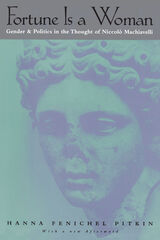
Hanna Pitkin's provocative and enduring study of Machiavelli was the first to systematically place gender at the center of its exploration of his political thought. In this edition, Pitkin adds a new afterword, in which she discusses the book's critical reception and situates the book's arguments in the context of recent interpretations of Machiavelli's thought.
"A close and often brilliant exegesis of Machiavelli's writings."—The American Political Science Review
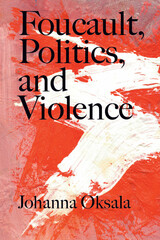
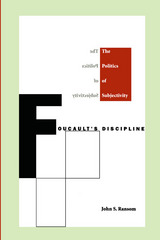
Foucault’s Discipline demonstrates how Foucault’s valorization of descriptive critique over prescriptive plans of action can be applied to the decisively altered political landscape of the end of this millennium. By reconstructing the philosopher’s arguments concerning the significance of disciplinary institutions, biopower, subjectivity, and forms of resistance in modern society, Ransom shows how Foucault has provided a different way of looking at and responding to contemporary models of government—in short, a new depiction of the political world.
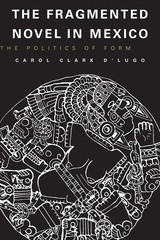
From Mariano Azuela's 1915 novel Los de abajo to Rosamaría Roffiel's Amora of 1989, fragmented narrative has been one of the defining features of innovative Mexican fiction in the twentieth century. In this innovative study, Carol Clark D'Lugo examines fragmentation as a literary strategy that reflects the social and political fissures within modern Mexican society and introduces readers to a more participatory reading of texts.
D'Lugo traces defining moments in the development of Mexican fiction and the role fragmentation plays in each. Some of the topics she covers are nationalist literature of the 1930s and 1940s, self-referential novels of the 1950s that focus on the process of reading and writing, the works of Carlos Fuentes, novels of La Onda that came out of rebellious 1960s Mexican youth culture, gay and lesbian fiction, and recent women's writings.
With its sophisticated theoretical methodology that encompasses literature and society, this book serves as an admirable survey of the twentieth-century Mexican novel. It will be important reading for students of Latin American culture and history as well as literature.
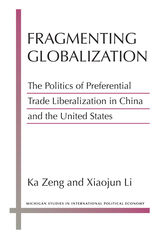
Fragmenting Globalization uses multiple methods, including time series, cross-sectional analysis of the pattern of Preferential Trade Alliance formation by existing World Trade Organization members, a firm-level survey, and case studies of the pattern of corporate support for regional trade liberalization in both China and the United States. Zeng and Li show that the growing fragmentation of global production, trade, and investment is altering trade policy away from the traditional divide between export-oriented and import-competing industries.
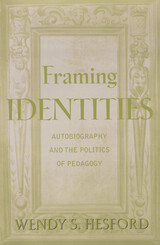
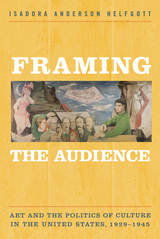
Framing the Audience explores the cultural politics of the Great Depression and World War II through the prism of art appreciation. Isadora Helfgott interrogates the ideological and political motivations for breaking down barriers between fine art and popular culture. She charts the impact that changes in art appreciation had on the broader political, social, cultural, and artistic landscape.
Framing the Audience argues that efforts to expand the social basis of art became intertwined with—and helped shape—broader debates about national identity and the future of American political economy. Helfgott chronicles artists’ efforts toinfluence the conditions of artistic production and display. She highlights the influence of the Federal Art Project, the impact of the Museum of Modern Art as an institutional home for modernism in America and as an organizer of traveling exhibitions, and the efforts by LIFE and Fortune magazines to integrate art education into their visual record of modern life. In doing so, Helfgott makes critical observations about the changing relationship between art and the American public.
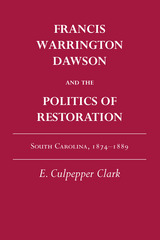
"This is a book that anyone interested in South Carolina history, the emergence of the New South, and the southern press, so important to the regional culture, will find valuable. Clark has researched all the important manuscript collections and a wide variety of other sources. He also writes in a style that is lucid and imaginative." —Journal of Southern History

This edited volume explores the dynamic relationship between the Friday mosque and the Islamic city, addressing the traditional topics through a fresh new lens and offering a critical examination of each case study in its own spatial, urban, and socio-cultural context. While these two well-known themes—concepts that once defined the field—have been widely studied by historians of Islamic architecture and urbanism, this compilation specifically addresses the functional and spatial ambiguity or liminality between these spaces.
Instead of addressing the Friday mosque as the central signifier of the Islamic city, this collection provides evidence that there was (and continues to be) variety in the way architectural borders became fluid in and around Friday mosques across the Islamic world, from Cordoba to Jerusalem and from London to Lahore. By historicizing different cases and exploring the way human agency, through ritual and politics, shaped the physical and social fabric of the city, this volume challenges the generalizing and reductionist tendencies in earlier scholarship.


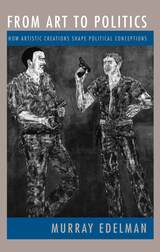
In this book, Edelman continues his quest to understand the influence of perception on the political process by turning to the role of art. He argues that political ideas, language, and actions cannot help but be based upon the images and narratives we take from literature, paintings, film, television, and other genres. Edelman believes art provides us with models, scenarios, narratives, and images we draw upon in order to make sense of political events, and he explores the different ways art can shape political perceptions and actions to both promote and inhibit diversity and democracy.
"Elegantly written. . . . He brilliantly contends that art helps create the images from which opinion-molders and citizens construct the social realities of politics."—Choice
"It is perhaps the freshness with which he puts his case that is what makes From Art to Politics, as well as his other works, so challenging and invigorating."—Philip Abbott, Review of Politics
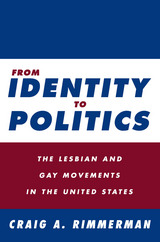
Enriched by eight years of interviews in Washington, D.C. and New York City, and by the author's experience as a Capitol Hill staffer, From Identity to Politics will provoke discussion in classrooms and caucus rooms across the United States.
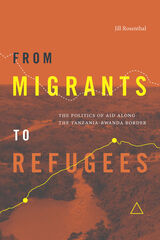
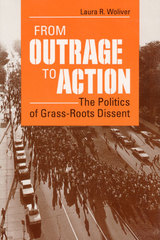
Through in-depth interviews with activists, Laura Woliver examines these community actions, studying the groups involved and linking her conclusions to larger questions of political power and the impact of social movements. Her findings will make fascinating reading for those interested in the rise and fall of grass-roots interest groups, the nature of dissent, and
the reasons why people volunteer countless hours, sometimes in the face
of community opposition and isolation, to dedicate themselves to a cause.
The ad hoc interest groups studied are the Committee to Recall Judge
Archie Simonson (Madison), the Coalition for Justice for Ernest Lacy (Milwaukee),
Concerned Citizens for Children (Grant County, Wisconsin), and Citizens
Taking Action (Madison). Woliver relates the community responses in these
cases to those in the Jeffrey Dahmer mass murder case and the beating
by Los Angeles police of Rodney King.
"A pioneering investigation of local, ad hoc interest groups that
are launched by a blatant injustice. . . . Explores the impressive defensive
capabilities against change of established social groups and portrays
the complex consequences of 'sputtering interests' for attitudes (such
as consciousness raising), for action, and for future policy. An important
and innovative contribution."
-- Mary Edelman, author of The Symbolic Uses of Politics
"A truly humanistic piece of social science research, offering fascinating
insights on grassroots participants, their feelings, and their fates."
-- Janet K. Boles, author of American Feminism: New Issues for
a Mature Movement

Does religion promote political mobilization? Are individuals motivated by their faith to focus on issues of social justice, personal morality, or both? What is the relationship between religious conviction and partisanship? Does religious identity reinforce or undermine other political identifications like race, ethnicity, and class?
The answers to these questions are hardly monolithic, varying between and within major American religious groups. With an electoral climate increasingly shaped by issues of faith, values, and competing moral visions, it is both fascinating and essential to examine the religious and political currents within America's major religious traditions.
J. Matthew Wilson and a group of prominent religion and politics scholars examine these topics and assess one question central to these issues: How does faith shape political action in America's diverse religious communities? From Pews to Polling Places seeks to cover a rich mosaic of religious and ethnic perspectives with considerable breadth by examining evangelical Christians, the religious left, Catholics, Mormons, African Americans, Latinos, Jews, and Muslims. Along with these groups, the book takes a unique look at the role of secular and antifundamentalist positions, adding an even wider outlook to these critical concerns.
The contributors demonstrate how different theologies, histories, and social situations drive distinct conceptualizations of the relationship between religious and political life. At the same time, however, the book points to important commonalities across traditions that can inform our discussions on the impact of religion on political life. In emphasizing these similarities, the authors explore the challenges of political mobilization, partisanship, and the intersections of religion and ethnicity.
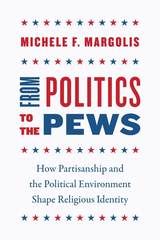
Michele F. Margolis offers a bold challenge to the conventional wisdom, arguing that the relationship between religion and politics is far from a one-way street that starts in the church and ends at the ballot box. Margolis contends that political identity has a profound effect on social identity, including religion. Whether a person chooses to identify as religious and the extent of their involvement in a religious community are, in part, a response to political surroundings. In today’s climate of political polarization, partisan actors also help reinforce the relationship between religion and politics, as Democratic and Republican elites stake out divergent positions on moral issues and use religious faith to varying degrees when reaching out to voters.
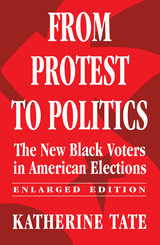
The struggle for civil rights among black Americans has moved into the voting booth. How such a shift came about—and what it means—is revealed in this timely reflection on black presidential politics in recent years.
Since 1984, largely as a result of Jesse Jackson’s presidential bid, blacks have been galvanized politically. Drawing on a substantial national survey of black voters, Katherine Tate shows how this process manifested itself at the polls in 1984, 1988, and 1992. In an analysis of the black presidential vote by region, income, age, and gender, she is able to identify unique aspects of the black experience as they shape political behavior, and to answer longstanding questions about that behavior.
Unique in its focus on the black electorate, this study illuminates a little-understood and tremendously significant aspect of American politics. It will benefit those who wish to understand better the subtle interplay of race and politics, at the voting booth and beyond.
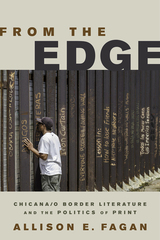

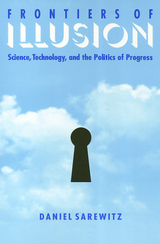
For the past fifty years, science and technology—supported with billions of dollars from the U.S. government—have advanced at a rate that would once have seemed miraculous, while society's problems have grown more intractable, complex, and diverse. Yet scientists and politicians alike continue to prescribe more science and more technology to cure such afflictions as global climate change, natural resource depletion, overpopulation, inadequate health care, weapons proliferation, and economic inequality.
Daniel Sarewitz scrutinizes the fundamental myths that have guided the formulation of science policy for half a century—myths that serve the professional and political interests of the scientific community, but often fail to advance the interests of society as a whole. His analysis ultimately demonstrates that stronger linkages between progress in science and progress in society will require research agendas that emerge not from the intellectual momentum of science, but from the needs and goals of society.
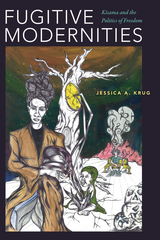
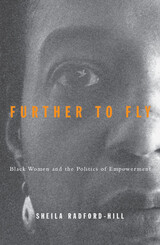
READERS
Browse our collection.
PUBLISHERS
See BiblioVault's publisher services.
STUDENT SERVICES
Files for college accessibility offices.
UChicago Accessibility Resources
home | accessibility | search | about | contact us
BiblioVault ® 2001 - 2024
The University of Chicago Press









